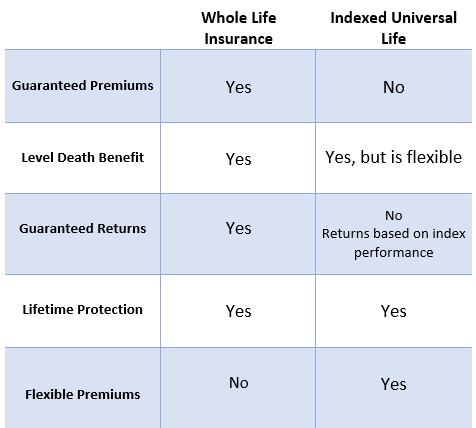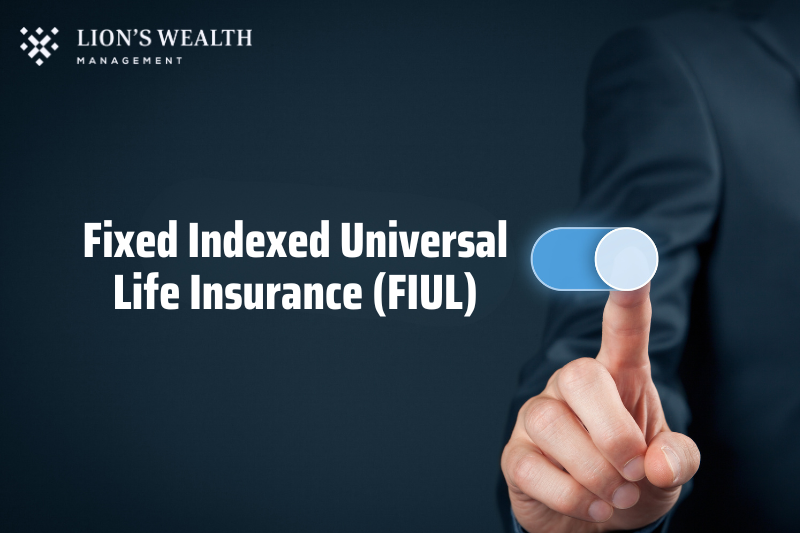All Categories
Featured
Table of Contents
In exchange for gaining a restricted amount of the index's development, the IUL will certainly never obtain less than 0 percent passion. Also if the S&P 500 decreases 20 percent from one year to the next, your IUL will not lose any kind of cash value as an outcome of the marketplace's losses.

Visualize the interest compounding on a product with that kind of power. Given all of this details, isn't it imaginable that indexed universal life is a product that would permit Americans to get term and invest the remainder?
A real investment is a securities item that undergoes market losses. You are never ever subject to market losses with IUL merely since you are never ever subject to market gains either. With IUL, you are not purchased the marketplace, but just making rate of interest based on the performance of the marketplace.
Returns can grow as long as you continue to make repayments or keep a balance.
Iul Good Or Bad
Unlike global life insurance policy, indexed global life insurance policy's cash money worth gains passion based upon the efficiency of indexed stock markets and bonds, such as S&P and Nasdaq. Keep in mind that it isn't directly purchased the securities market. Mark Williams, CEO of Brokers International, points out an indexed global life policy resembles an indexed annuity that seems like universal life.

Universal life insurance policy was produced in the 1980s when passion prices were high. Like various other types of irreversible life insurance, this plan has a cash money worth.
Indexed universal life policies use a minimal guaranteed rates of interest, also called a passion attributing floor, which decreases market losses. Claim your cash money value loses 8%. Lots of firms give a floor of 0%, suggesting you won't lose 8% of your financial investment in this case (best indexed universal life insurance). Understand that your cash worth can decrease also with a flooring due to premiums and other costs.
Nationwide Single Premium Ul
It's likewise best for those ready to assume added threat for higher returns. A IUL is a long-term life insurance coverage plan that obtains from the residential or commercial properties of an universal life insurance plan. Like universal life, it allows flexibility in your death benefit and costs payments. Unlike global life, your cash money value grows based upon the efficiency of market indexes such as the S&P 500 or Nasdaq.
Her job has been published in AARP, CNN Highlighted, Forbes, Fortune, PolicyGenius, and United State News & Globe Report. ExperienceAlani has actually evaluated life insurance coverage and pet dog insurer and has actually composed numerous explainers on traveling insurance coverage, credit, financial debt, and home insurance policy. She is passionate regarding debunking the complexities of insurance coverage and various other individual financing topics to make sure that readers have the info they need to make the very best money choices.

Paying only the Age 90 No-Lapse Premiums will ensure the death advantage to the insured's acquired age 90 yet will not ensure cash money worth build-up. If your customer terminates paying the no-lapse warranty costs, the no-lapse attribute will end before the guaranteed duration. If this occurs, extra costs in an amount equal to the shortfall can be paid to bring the no-lapse function back active.
I just recently had a life insurance policy sales person show up in the remarks string of an article I published years ago concerning not blending insurance policy and investing. He assumed Indexed Universal Life Insurance Policy (IUL) was the very best thing given that sliced bread. On behalf of his setting, he published a link to a post composed in 2012 by Insurance Agent Allen Koreis in 2012, entitled "16 Reasons Accountants Prefer Indexed Universal Life Insurance Policy" [link no much longer readily available]
Indexed Universal Life Insurance Vs Term
Nonetheless, initially a short explanation of Indexed Universal Life Insurance Policy. The destination of IUL is obvious. The property is that you (almost) obtain the returns of the equity market, with no risk of shedding money. Currently, prior to you diminish your chair poking fun at the absurdity of that statement, you need to recognize they make an extremely convincing disagreement, at the very least up until you check out the information and realize you don't obtain anywhere near the returns of the equity market, and you're paying much way too much for the guarantees you're getting.

If the market goes down, you get the guaranteed return, generally something in between 0 and 3%. Naturally, since it's an insurance coverage, there are additionally the usual costs of insurance policy, payments, and abandonment fees to pay. The information, and the reasons that returns are so awful when mixing insurance and investing in this particular means, boil down to primarily three points: They just pay you for the return of the index, and not the rewards.
Iul Life Insurance Pros And Cons
Your optimum return is topped. If you cap is 10%, and the return of the S&P 500 index fund is 30% (like last year), you get 10%, not 30%. Some plans just offer a certain percentage of the adjustment in the index, state 80%. If the Index Fund goes up 12%, and 2% of that is dividends, the adjustment in the index is 10%.
Add all these effects together, and you'll discover that long-term returns on index global life are pretty darn near to those for entire life insurance coverage, favorable, yet low. Yes, these policies ensure that the cash money worth (not the cash that mosts likely to the prices of insurance coverage, obviously) will not lose cash, however there is no assurance it will certainly stay on top of inflation, much less grow at the rate you require it to grow at in order to attend to your retired life.
Koreis's 16 factors: An indexed global life plan account value can never ever shed cash due to a down market. Indexed universal life insurance coverage guarantees your account worth, locking in gains from each year, called a yearly reset.
In investing, you make money to take danger. If you do not wish to take much danger, do not expect high returns. IUL account worths grow tax-deferred like a qualified strategy (individual retirement account and 401(k)); shared funds don't unless they are held within a certified strategy. Simply put, this means that your account worth gain from three-way compounding: You earn rate of interest on your principal, you earn interest on your interest and you earn passion on the cash you would otherwise have actually paid in taxes on the passion.
Group Universal Life Cash Accumulation Fund
Certified strategies are a far better choice than non-qualified plans, they still have problems not present with an IUL. Investment choices are generally limited to mutual funds where your account worth goes through wild volatility from exposure to market risk. There is a big distinction in between a tax-deferred pension and an IUL, but Mr.
You spend in one with pre-tax dollars, conserving on this year's tax obligation expense at your limited tax rate (and will often have the ability to withdraw your money at a reduced efficient rate later) while you purchase the various other with after-tax dollars and will be compelled to pay rate of interest to obtain your own money if you do not wish to surrender the plan.
Then he includes the timeless IUL salesperson scare strategy of "wild volatility." If you hate volatility, there are much better means to lower it than by getting an IUL, like diversity, bonds or low-beta stocks. There are no restrictions on the amount that may be contributed annually to an IUL.

Why would the federal government placed restrictions on exactly how much you can place into retirement accounts? Maybe, just maybe, it's because they're such an excellent offer that the government doesn't desire you to save also much on taxes.
Latest Posts
National Life Iul
Nationwide Indexed Universal Life
What's The Difference Between Whole Life And Universal Life Insurance